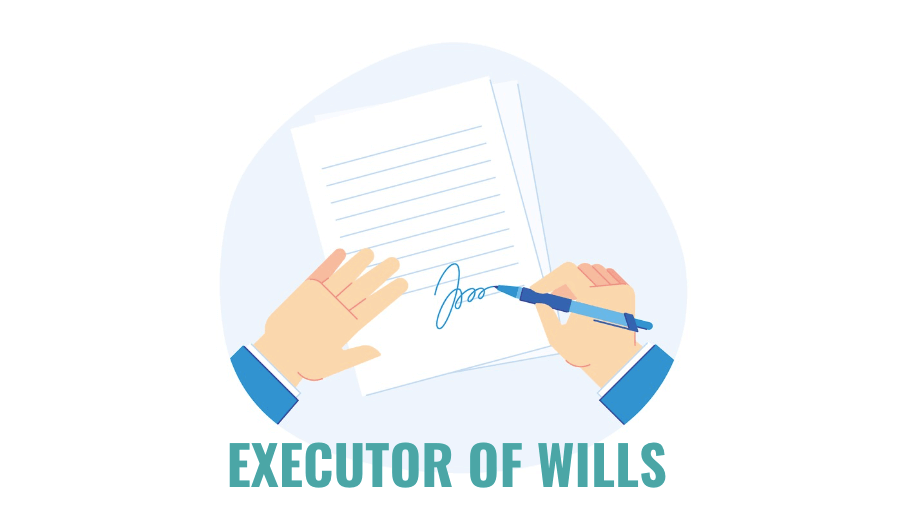Power of Attorney, BC: What You Should Know
1. What is ‘Power of Attorney’ in BC?
In British Columbia, a Power of Attorney (POA) is a legal document that appoints person(s) to handle financial and legal matters on your behalf, while you are alive.
The person making the Power of Attorney is called the “adult” and the person(s) being appointed to act for the adult are called the “attorney(s)”.
Subject to any restrictions found in the Power of Attorney document, an attorney can use a POA to pay the adult’s bills, deposit or withdraw funds from the adult’s bank account, access the adult’s safety deposit box, file the adult’s income taxes and deal with CRA on behalf of the adult, renew or cancel (life, vehicle, travel, home) insurance for the adult, and deal with real estate on behalf of the adult (buy, sell or mortgage property in the adult’s name).
2. Do I need a Power of Attorney?
YES — Regardless of your age, relationship status, assets, or level of independence – you need a Power of Attorney!
- Young? Single? Independent? That’s great, but life can change in an instant; incapacity planning is important. (Bonus: an enduring power of attorney may come in handy while the independent woman in you goes globe trotting alone for a few months).
- Married or in a common-law relationship? Couples with joint bank accounts can access money without their spouse being present, but did you know that spouses do not have legal authority to sign documents or to legally act for each other without? So, if you and your spouse own a home together and your spouse (who does not have an enduring power of attorney) becomes incapacitated, you cannot sell or refinance the house without first obtaining a (very expensive) court order.
- Do you have adult children (over 19)? Having an enduring power of attorney in place gives your adult children peace of mind; they’ll know that you have your incapacity documents in order and they won’t have to worry about you. Bonus: if you want, you can appoint your adult child(ren) as your attorney(s).
- Do you have minor children (under 19)? If you become incapacitated, an enduring power of attorney will ensure that there is someone who can access your money to continue to pay for the care of your minor children.
A Power of Attorney is a critical personal planning document and is recommended for ALL adults (19+) who live in British Columbia (and for all adults living outside BC who have assets in BC).
It should be noted that a Power of Attorney in BC is not the same thing as a Will and that the two documents have completely different purposes. A Will governs a person’s estate AFTER they die; whereas a POA is for use only while the adult is ALIVE. It is also important to note that a POA can only be used for legal and financial purposes and that a POA cannot be used in BC for conferring medical authority or directives. (For more information about health care and personal care planning tools, including Representation Agreements, click here).
The amount of PTT payable is based on the FMV of the property, in proportion to the percentage of interest being acquired, at the following taxation rate:
- 1% on the first $200,000.00; and
- 2% up to and including $2,000,000; and
- 3% up to and including $3,000,000; and
- 5% on values over $3,000,000
For example, if Anna buys a property with a FMV of $1,000,000, Anna will pay the full $18,000 of PTT on completion. (1% on $200,000 = $2,000; 2% on $800,000 = $16,000; $2,000 + $16,000 = $18,000). But, if Anna buys the same property with her sister, Elsa, the amount that each sister pays in PTT is proportional to her share of ownership in the property. So, if Anna buys 60% of the property and Elsa buys 40%, then Anna pays $10,800 and Elsa pays $7,200 to comprise the total PTT. (Note: the total PTT payable does not change – only the assignment of the tax to each person).
3. Who can make a Power of Attorney in BC?
In British Columbia, the Power of Attorney Act is the provincial legislation that governs POA creation, use, obligations and authority. According to the Act, all adults (19+) may make a Power of Attorney in BC unless they are incapable of understanding the nature and consequences of a Power of Attorney.
Specifically, in order to create a power of attorney in BC, the adult must understand ALL of the following:
- the property the adult has and its approximate value;
- the obligations the adult owes to the adult’s dependants;
- that the adult’s attorney will be able to do on the adult’s behalf anything in respect of the adult’s financial affairs that the adult could do if capable, except make a will, subject to the conditions and restrictions set out in the enduring power of attorney;
- that, unless the attorney manages the adult’s business and property prudently, their value may decline;
- that the attorney might misuse the attorney’s authority;
- that the adult may, if capable, revoke the enduring power of attorney.
If the adult does not meet the above-noted legislative capacity requirements, then the adult may still have capacity to make a section 7 Representation Agreement to appoint someone to handle their ‘routine’ financial needs in addition to handling their medical decisions; however, this type of Representation Agreement may not be able to confer enough authority (ie: it cannot be used to deal with property or ‘non-routine’ financial and legal matters). Therefore, when an adult has lost capacity and does not have an enduring power of attorney in place, the adult’s family is most often required to obtain a court order – called Committeeship – in order to be able to manage the incapacitated adult’s affairs. A court order is costly (thousand of dollars!), time-consuming and leaves the decision to the court, rather than to the adult.
4. What are the types of Power of Attorney in BC?
There are different types of powers of attorneys in British Columbia.
A “General” Power of Attorney, also known as a “Non-Enduring” Power of Attorney, can only be used by the attorney while the adult has capacity. Most adults put a POA in place for the primary purpose of planning for their own potential incapacity, so this type of Power of Attorney is not commonly used.
Example: Sheldon is a business owner and is preparing to undergo a surgery; he understands that he will require a long recovery period with mobility challenges. Sheldon appoints his friend, Leonard, as his attorney under a non-enduring POA so that Sheldon will be able to instruct Leonard to conduct personal banking and company business on Sheldon’s behalf. Sheldon understands that the POA will not work if Sheldon loses mental capacity.
Conversely, it is possible to create a POA that can be used only when (if) the adult loses capacity. This is called a Springing Power of Attorney. This type of POA is effective for incapacity planning, but it lacks flexibility and versatility because it limits the use of the document to a circumstance that may never occur (the adult’s incapacity).
Example: Logan Roy runs a corporate empire and is steadfast in his decision not to delegate any authority to anyone while can still manage his own affairs. Logan understands the importance of incapacity planning but does not currently require (or anticipate a need for) assistance with his financial or legal matters; he creates a Springing POA naming his children, Kendall, Roman and Siobhan as his attorneys, so that they can act as his attorneys if he loses capacity.
Instead, most adult opt for an Enduring Power of Attorney, which can be used while the adult is capable and even after (if) the adult becomes incapacitated – the POA endures for the entire lifetime of the adult (or until revoked). Without restrictions, an enduring power of attorney grants authority for an attorney to handle ‘anything that the adult can lawfully do by agent’. (Note: a POA cannot be used to change the Adult’s Will).
Example: Chandler understands the importance of incapacity planning and he also realizes that sometimes there will be instances where it may be convenient to have someone act on his behalf (even while he has capacity). Chandler signs an enduring power of attorney naming his wife, Monica, as his attorney. The enduring POA allows Monica to sign for herself and on Chandler’s behalf when their house insurance comes up for renewal while Chandler is out of town for work. Monica will be able to use the same enduring power of attorney if Chandler loses capacity too.
Sometimes, in certain circumstances, an adult is not comfortable with conferring such broad authority and wishes to refine or reduce the amount of authority that is being bestowed upon the attorney. The terms “Restrictive,” “Limited,” or “Specific Performance” Power of Attorney are used to describe a POA that limits the attorney’s authority from the broad ability to handle all the adult’s legal and financial matters to a more refined scope of authority.
Example: Carrie lists her condo for sale with a local realtor; Carrie expects to receive a reasonable offer in the next few weeks, but she knows she will be out of the country for the next 12 weeks on a vacation with her husband, Mr. Big. So, Carrie visits her local BC notary public to obtain a Limited POA so that she can appoint her friend, Miranda, as her attorney. The POA sets out parameters that restrict Miranda’s authority deal with the condo sale only; Miranda will be able to sell Carrie’s condo (meet with her BC notary to handle the real estate transaction, including signing Land Title Office paperwork and receiving net sale proceeds payable to Carrie), but Miranda will not be able to handle any other financial or legal matters for Carrie.
5. What should I know before appointing Attorney(s) under my Power of Attorney in BC?
Ideal qualities of attorney(s):
In British Columbia, an attorney under a POA must be at least 19 years old and should exemplify some (if not all) of the following characteristics:
- Trustworthy
- Financial competency
- Maturity and accountability
- Strong organization skills
- Willingness to accept the position
Note: many of the qualities that make for a good attorney under your BC POA are also qualities that you would want in your executor (who is appointed in your Will). It is possible to name the same person(s) to be both your attorney and your executor in the two different documents.
Appointing multiple attorneys:
Aside from personal qualities and skillsets, you should also consider if you want to appoint more than one attorney. (One person is good but two is better – what happens if something happens to one of your attorneys? Having a backup plan is always a good idea). And, if you appoint 2+ attorneys, who is given what authority when?
Most often, an adult will appoint a first attorney and a second (or alternate) attorney to act only if the first attorney cannot act. In other circumstances, an adult appoints two attorneys at the same time; in this case the adult specifies in the POA if the attorneys must act together or if they may act separately. Additionally, and in more rare circumstances, an adult may appoint three or more attorneys. For example, in the above-noted example with Logan, his POA appoints his three children Kendall, Siobhan and Roman, as his attorneys and Logan may instruct his BC notary to draft the POA so that any two of his three attorneys must act together.
6. Does a Power of Attorney in BC expire? When does authority end under a POA?
In some cases, it is possible for a British Columbia Power of Attorney to expire – either wholly or partially. For example, under the Land Title Act, a general (non-enduring) power of attorney in BC may expire for land title office use (real estate matters) after 3 years, unless otherwise specified in the POA document. Another example is a Specific Performance POA, which may ‘expire’ or become void after a specific task is complete. (Note: in the example with Carrie and Miranda, above, after Miranda sells Carrie’s condo, then there can be no further use of that Specific Performance POA).
Conversely, an enduing power of attorney does not expire. An enduring power of attorney is valid until:
- the adult revokes (cancels) the POA;
- a court terminates the POA;
- an attorney dies, resigns or is incapacitated (in which case just that attorney’s authority is terminated and any other attorneys appointed in the POA may still act, subject to conditions of the POA); or
- the adult dies.
7. How do I make a Power of Attorney in BC?
Contact Krische & Co. Notaries to get started making a power of attorney in BC.
Our Notary will assist you by:
- Verifying your identity;
- Assessing your capacity;
- Helping you to determine the type of Power of Attorney that will best suit your needs;
- Giving you advice;
- Preparing your Power of Attorney;
- Signing & witnessing your Power of Attorney.
This article is meant to provide general information about Powers of Attorneys for use in British Columbia, Canada; this article does not constitute legal advice.






